 Your new post is loading...
 Your new post is loading...
If their labor was similar to that of many other reporters in town covering the convention, their nationality wasn't. Reporter Jiwon Park and cameraman Bohyun Bang are with Arirang TV based in Seoul, South Korea. Why were they here? "It's the president of the United States," Park explained. "We have a lot of interest in the United States. It is the number-one country in the world." As NBC's Chuck Todd was hustling to a nearby outdoors studio not too far away and eliciting a news celebrity's typical response from passersby ("hey, that's the guy from CBS!" a Mississippi delegate said to his companion), the two journalists from Arirang were virtually unnoticed and blended into the bustle of conventioneers, media and massive security. The duo has been in the country for 10 days, starting in Washington, D.C. and finishing up in Cleveland.I asked if they had come to any clear understanding of Trump's appeal. They said a little bit but not completely. Perhaps join the crowd, I said....
For supporters of Britain staying in the EU, a simple question remains this morning: How did we fail to persuade voters of our position? Steve Martin, director at Influence at Work in London and best-selling author of several books on persuasion, spoke with HBR about the ways in which the Remain advocates’ message failed to get through, or even backfired. Martin was joined by Joseph Marks, a behavioral scientist on his team.
HBR: From a persuasion science point of view, how do you explain the vote for Britain’s exit from the EU?
Steve Martin: There seems to have been a focusing effect. The Leave side made sure that immigration became a focus. Not only a focus but the focus. And once that’s a focus it’s hard to get other messages through. What we see is all there is. Danny Kahneman said that clearly. We can only pay attention to a limited number of things and if we see that immigration story every day, that’s what affects us more than a rational argument that predicts what would happen if we left.
But they saw the economic arguments every day, too. Why couldn’t the Remain side focus the voters on that?
Joseph Marks: I think both campaigns were built around fear of loss. One was what we’re losing in terms of immigration coming in. And one was loss to the economy and your pocket. Normally that wins. That’s number one. But right now, you can see that immigration issue as happening now, in the present, whilst the economy is doing well. In the optimism literature, we’ve seen that people are generally optimistic about their own futures when the economy is good, so that’s maybe how the economic argument lost to something that feels more pressing to people. So ironically the very people who helped get our economy on track created an environment that makes it harder to communicate their message of potential negative impacts of leaving the EU. The health of the economy created a good economic environment that had a disproportionate influence over decision making at that moment....
Hillary Clinton’s “delete your account” moment was no fluke: Her tweet heard round the world was just the most viral example of her newly aggressive effort to take the 2016 fight directly to Donald Trump on his favorite social media turf.
After a long primary campaign in which Trump has used Twitter to pump out an endless stream of taunts at rivals and gobble up news coverage, Clinton’s campaign has rolled out a strategy in recent weeks to turn the presumptive GOP nominee's own words against him — with some sly sarcasm and snark. Her barbs may appear off the cuff but are sometimes planned and edited well in advance, making the Clinton-Trump war on Twitter an extension of the contrast between their distinct political styles: staff-driven and tightly scripted versus shoot-from-the-hip, aggressive and biting.
Thursday’s skirmish represented the peak Twitter moment of the 2016 campaign so far. When Trump tweeted out an attack on President Barack Obama's endorsement of “Crooked Hillary,” her campaign responded five minutes later with “Delete your account” — a time-honored social media jibe that quickly became her most popular tweet ever, with more than 420,000 retweets and over half a million likes by Friday afternoon. (That far surpassed the traffic of Trump’s infamous “Taco Bowl” tweet from Cinco de Mayo.)
Trump waited more than two hours to tweet a response to Clinton: “How long did it take your staff of 823 people to think that up — and where are your 33,000 emails that you deleted?”...
We suppose it is possible for the Department of State to screw up the handling of questions about whether they lied to reporters even worse — but it is hard to figure out how. The video below from CNN’s Jake Tapper today nicely lays out the series of offenses — but here is our quick summary: In February 2013 Fox News correspondent James Rosen asked then State Department spokeswoman Victoria Nuland if there had been direct talks between the U.S. and Iran. She essentially said “NO.” In December 2013, Rosen points out to Nuland’s successor Jen Psaki that the correct answer would have been “YES” and asked if State routinely lied to reporters when they found it convenient. Psaki with a smirk said there are times when diplomacy needs privacy to succeed. (Translation: yes, we lied)....
The Republican frontrunner met with the editorial board on Monday morning. The full transcript follows at the link above: FREDERICK RYAN JR., WASHINGTON POST PUBLISHER: Mr. Trump, welcome to the Washington Post. Thank you for making time to meet with our editorial board. DONALD TRUMP: New building. Yes this is very nice. Good luck with it. RYAN: Thank you… We’ve heard you’re going to be announcing your foreign policy team shortly… Any you can share with us? TRUMP: Well, I hadn’t thought of doing it, but if you want I can give you some of the names… Walid Phares, who you probably know, PhD, adviser to the House of Representatives caucus, and counter-terrorism expert; Carter Page, PhD; George Papadopoulos, he’s an energy and oil consultant, excellent guy; the Honorable Joe Schmitz, [former] inspector general at the Department of Defense; [retired] Lt. Gen. Keith Kellogg; and I have quite a few more. But that’s a group of some of the people that we are dealing with. We have many other people in different aspects of what we do, but that’s a representative group....
I challenge each of the remaining candidates for president. Do you have the courage to make this speech and save America from Donald Trump?
My fellow Americans, today’s speech is not about me. It is about you.
I speak to you today about the greatest threat to America’s future. It’s not ISIS. It’s not gun violence or drugs. It is Donald Trump.
The reason is simple. Unlike every other candidate in this race — and unlike the committed people that make up our government — Donald Trump has only an empty hole where his conscience should be....
The 2016 US presidential election is still more than a year away, but the battle is already heating up on social media — with some unexpected results.
Hillary Clinton, Donald Trump, Jeb Bush and the rest of the 2016 hopefuls are busy duking it out on Twitter and Facebook, as well as newer platforms like Instagram, Snapchat and live-streaming tools Meerkat and Periscope. At stake is a lot more than just likes and views. By many accounts, social media helped Barack Obama tip the balance during the 2012 election. (His campaign spent 10 times as much on social media as did Mitt Romney’s, earning Obama twice as many Facebook Likes and 20 times as many Retweets). Political pundits are already predicting that social media may rival traditional ads for influence in this election cycle.
The result has been a social media frenzy, with candidates from all backgrounds eagerly jumping in and trying to get their messages out. The quest to stand out from the noise has led to some pretty creative experiments on the part of the 2016 presidential class. Sometimes they get it right. Sometimes they get it wrong. And sometimes the results are just surreal....
In the wake of yesterday's mass shooting at a college in Oregon, a visibly distressed President Obama challenged to media to analyse deaths from terrorism and gun violence, publishing the numbers side by side. Over 10,000 people are killed in gun violence in the United States every year. After 9/11, the number of U.S. citizens killed in terrorist attacks each year has never surpassed 75.
Just when you think the Bad Lip Reading videos couldn’t get any funnier, along comes this treatment of the recent Republican presidential primary debate.
In this version, the candidates tackle the issues that really matter, as the scurrilous accusations fly.
And they make some crazy pledges to the voters.
While at least one contender’s nerves seem to get the better of him.
In an innovative tweak to the debate format, the candidates get to make their pitches through the medium of song, just as the Founding Fathers surely intended.…while throwing some funky moves....
Gawker recently turned food marketers' heads with a 2,500-word takedown of blogger, dietary guru and anti-GMO activist Vani Hari, aka "Food Babe." Author Yvette d'Entremont, who started a rival blog under the "Science Babe" moniker, asserted that Hari peddles easily disproved pseudoscience designed to frighten people into emptying their pantries of "toxins" and send angry emails to major food conglomerates.
Vani, a New York Times bestselling writer and TV talk show guest, responded with a can't-we-just-be-friends lament before casting d'Entremont as a "biased," pro-pesticide advocate promoting that most unpopular of agricultural villains—Monsanto. She even created a disclaimer for readers who visit her site from links in the Gawker post: "Coming from Gawker? Warning: I believe you should have both sides of the story before you make an informed opinion. Read the other side of the story here."
A larger trend is lurking beneath this spat over digital influence: America is facing a growing crisis of credibility in food labeling. And as consumers struggle to decide whom to trust—passionate bloggers or major food brands—agencies can get caught in the crossfire....
.Once, these analysts would have written “big-picture” pieces, says Mr Kundnani. But 24-hour news and Twitter demand on-the-fly reporting and analysis, which blend into journalism. Nathan Thrall, the ICG’s Middle East analyst, based in Jerusalem, has written about the conflict in Gaza for, among others, the New York Times and the London Review of Books.
Some journalism, meanwhile, is becoming more wonkish. In April the New York Times launched the Upshot, which features data-packed articles—many written by wonks. “Wonkblog”, by the Washington Post, contains stories explained “in one chart”. In January one of its best-known writers, Ezra Klein, left to launch a website, Vox, that does something similar.
For politicians, policymakers and readers, more journalism means more information and choice. Inaccuracies can be quickly challenged and there is always a second opinion. For journalists, the news is not so good. Twitter, blogs and newsletters can get a think-tank’s ideas to its audience direct. Hence a relationship that used to be symbiotic, with wonks helping create news and hacks distributing it, is becoming competitive—especially in the battle for influential readers, such as politicians....
Investigating the gun industry, Muslim extremists, and high-stakes litigation, I’ve grown accustomed to deadline intimidation from corporate legal departments or an executive’s personal PR squad, but only this week am I getting a feel for what it’s like to be the target when a sovereign nation goes into crisis-communication mode.
Worried about revelations in Law of the Jungle, my soon-to-be-released book about the epic Chevron (CVX) oil pollution case, the Republic of Ecuador’s U.S. public relations advisers, New York-based Ketchum, has sent a six-page, single-spaced memo to Ecuador’s ambassador to the U.S., Nathalie Cely. Marked “reservado y confidencial,” the memo, prepared in Spanish throughout, outlines “difficult questions” the book raises “that negatively affect Ecuador,” and includes an ad hominem swipe. “It remains unclear when and how many times Barrett visited Ecuador or if he interviewed anyone from the Government,” the memo states. “This can be converted into a point that we can raise, but only in suitable settings and among appropriate journalists.”
I obtained a copy of the memo from a helpful noncombatant who works for neither Ketchum nor the ambassador and who requested anonymity for all the obvious and usual reasons. The damage-control document is a peculiar combination of advice on how to discredit the messenger—“this can be converted into a point …”—and admissions that the book raises issues that do not reflect well on Ecuador’s government....
In a recent article on Vox, Ezra Klein declared that his generation of Washington journalists had discovered political science, and it is like the hottest thing on wheels. In the old days, he writes, journalists “dealt with political science episodically and condescendingly.” But now, Klein declares, “Washington is listening to political scientists, in large part because it’s stopped trusting itself.” Klein finds that political scientists give better answers to his questions than politicians themselves, because politicians are evasive but scientists are scientists, you know, they deal in “structural explanations” for political events. So the “young political journalists” who are roaring around town in their white lab coats frightening the local bourgeoisie “know a lot more about political science and how to use it” than their elders did.
Hence Klein’s title: “How Political Science Conquered Washington.”
Nearly every aspect of this argument annoyed me. To suggest, for starters, that people in Washington are—or were, until recently—ignorant or contemptuous of academic expertise is like saying the people of Tulsa have not yet heard about this amazing stuff called oil. Not only does Washington routinely fill the No. 1 spot on those “most educated cities” articles, but the town positively seethes with academic experts. Indeed, it is the only city I know of that actually boasts a sizable population of fake experts, handing out free-market wisdom to passers-by from their subsidized seats at Cato and Heritage....
|
For the 2008 presidential race, Barack Obama hired one of Facebook’s early employees, Chris Hughes, to drive the campaign’s technology strategy. Hughes created social tools that saved the campaign millions of dollars and months of grassroots community building, some of which are described in the book Barack, Inc. Back then however, Hughes’s contribution helped mobilize a relatively small portion of volunteers, those already familiar with social media — mainly young people and early adopters. It’s hard to remember this considering today’s widespread adoption, but the first iPhone only launched in 2007, a few months prior to the start of the campaign; and Facebook had only about 100 million users then, many of them university students. Today, three out of four American voters have both a smartphone and a Facebook account. How will technology impact the outcome of the 2016 presidential election? In this article, I review three critical aspects to watch: marketing, operations, and profiling....
His credibility is zero, but by attacking political correctness he projects a true voice to his internet followers
In most ways, Donald Trump has taken poor advantage of the Net. He has not used it for organizing and spreading a movement the way the Occupy Wall Street or Arab Spring did. He has not used it to raise essential funding for his campaign, as Bernie Sanders does. He has not used it to build community among his supporters as presidential candidates since Howard Dean in 2004 have. He has not even used it as the primary vehicle for getting his message out, relying instead on the countless hours of coverage broadcast media have provided for free — although he’s obviously no slouch at social media. But despite these missed opportunities, Donald Trump has utterly excelled in one single aspect of the Net. Leveraging — and perverting — one of its key values: Authentic speech.
Speech on the Net sounds very different than the voice of old media. When I was growing up, the media’s authoritative voice had the same accent. It was professionally enunciated, often presented as neutral and stripped of personal belief, always calm, and overwhelmingly male. Then the Internet liberated our voices, training us to expect people to speak for and as themselves, with all their idiosyncrasies and imperfections.
Trump’s voice is indeed authentic in that sense. After all, he is the first major candidate for the presidency of the United States who clearly writes his own tweets. Hillary Clinton (whom I support) tweets out carefully prepared campaign points that seem obviously to have been written by her staff — especially when the tweets are dispatched while Clinton is making a point in a live debate. Donald, on the other hand, just says whatever is crossing his mind at that moment, much of which is nasty, degrading, and untrue. The lack of a filter, the weird punctuation, the very clumsiness of its expression makes Trump’s Internet speech seem much more authentic than Clinton’s....
BuzzFeed has pulled out of an advertising agreement with the Republican National Committee over objections to Donald Trump's rhetoric.
The buy was for $1.3 million, a source close to BuzzFeed told POLITICO. The source said that the main consideration was the site’s employees – that BuzzFeed could not countenance “having employees make ads, or working at the company and having our site promoting things, that limit our freedom and make it harder for them to live their lives.”
Asked if the site would rule out any Trump advertising, the source said the specifics would matter: “In general, we have taken the position that we won’t take ads for his presidential campaign.”
If there’s one tactic that has stood out in this presidential campaign, it is the way GOP frontrunner Donald Trump has slain his foes with the jawbone of an ass.
Trump’s penchant for labeling his opponents—from “Lyin’ Ted” Cruz to “Low-Energy Jeb” Bush—has been like a boxer’s left hook to the liver. It doesn’t look like much until the other guy drops.
Now Trump is trying to do the same to his Democratic foes, calling them “crooked” and “crazy.”
After The New York Times Magazine explored the issue (“Donald Trump Shares His Opponent-Branding Secrets”), I wondered: Do the same labeling techniques work in PR and marketing? Whether it’s throwing mud or branding oneself positively, does Trump offer lessons to PR pros?
The consensus is that such tactics can work, but mudslinging is “risky,” a word Democratic frontrunner Hillary Clinton uses in an effort to brand Trump.
“Trump has a knack for coining just the right moniker, the perfectly dismissive and catchy thing,” The Times writer stated. “‘It works, it flows,’ Trump said, admiring his latest work.”
To run for president, you need to possess a certain je ne sais quoi when it comes to communicating messages that can provoke people to take action.
So regardless of which side of the aisle you sit on, your brand can take a lesson from each of the master marketers who remain in the race. The candidates clearly know how to engage their base.
Below are some of the top strategies and tactics of Decision 2016, which can be applied easily to your organization’s social channels to gain traction and win over some very loyal constituents....
If former Gov. Jeb Bush was looking for attention online, he certainly got it.
On Tuesday, the GOP candidate made a campaign stop at FN America’s firearm-manufacturing plant in South Carolina. He received a .45-caliber handgun engraved with his name as a gift, which he tweeted along with a single word: “America.”
The tweet went viral as Bush’s name trended on Twitter and started appearing in headlines. Though the candidate captured attention, the move ultimately backfired as negative sentiments rolled in.
Many tweeted replies similar to government whistleblower Edward Snowden’s...
The vast majority of working journalists, even those covering politics, have not sat down with a president of the United States for an interview. But in January 2015, three YouTube stars got that opportunity. They asked about drones, net neutrality and what super power the president would like to have. And then there was the moment when GloZell Green (3 million followers) handed a tube of her signature green lipstick to the leader of the free world. “For your first wife,” she said. Barack Obama was nonplussed. “You know something I don’t?” he asked.
To Dan Pfeiffer, the outgoing Senior Advisor to the President in charge of White House communications, the awkwardness was part of the lure: a moment of authenticity that helps a sometimes distant chief executive connect with his huge base of supporters. Pfeiffer, who has been with Obama since his first run for the White House, has been a key force in expanding the range of venues in which his boss can communicate with the American people. To the chagrin of a White House press corps accustomed to special access, the president has traded jibes and plugged Obamacare with Zach Galifianakis on Funny or Die, chatted about the climate with local weather anchors, and made faces in the mirror on a Buzzfeed video. The White House has also established a huge presence on Facebook, Twitter and Medium (yes, us), using the latter to break precedent and publish the State of the Union speech before the president delivered it....
Social media will play a big part in next year’s US election. In addition to existing voters, many who will be coming of age and voting for the first time will have grown up with it, so it makes sense to target potential supporters on the platforms they use most frequently.
To see who’s making their voice heard on social at this early stage, we decided to take a look at the Facebook performance of Republican and Democratic nominees for the presidency. Because the first GOP debate took place last month, we looked at the the Republican field first....
This Data Visualisation by @iantsommers. should be required reading for all US voters. As should is data source Politifact.
Their associations like the National Association of Manufacturers, Chamber of Commerce, National Federation of Independent Businesses, and the Business Roundtable began by increasing their member ship and member donations. In 1975 only 175 corporations had lobbyists, but by 1982 nearly 2500 companies did.
Political Action Committees (PACS) increased from 300 in 1976 to 12000 in 1985. The mobilization of big business resources had begun, which would ultimately affect taxes, regulations, the wealthy and the middle class. By 2011 they had 12,929 lobbyists dispensing $3.5 billion per year on lobbying.
This story will explain how big business used government to get 4 major tax reductions, modifying or terminating New Deal laws, to create new laws that favored the big banks and the wealthy, to change or rewrite labor laws that would help them bust unions, to negotiate trade agreements that favored the multi-national corporations over labor, and to pressure the government to ignore the trade deficit and foreign currency manipulation. Their lobbying successes resulted in a huge shift of wealth away from the middle class....
A population of 100,000 is no longer a guarantee that a city like Richmond, California can sustain a thriving daily paper. Readers have drifted from the tactile pleasures of print to the digital gratification of their smartphone screens, and advertising revenues have drifted with them. Titles that once served up debates from City Hall, news of school teams’ triumphs and classified ads for outgrown bikes have stopped the presses for good.
Last January, however, a site called the Richmond Standard launched, promising “a community-driven daily news source dedicated to shining a light on the positive things that are going on in the community”, and giving everyone from athletes to entrepreneurs the recognition they deserve. Since then, it has recorded the “quick-thinking teen” commended by California’s governor for saving a woman from overdosing; the “incredible strength” of the 5ft 6in high-school freshman who can bench-press “a whopping 295lbs”; and councilman Tom Butt’s warning about the costs of vacating a blighted public housing project.
The Richmond Standard is one of the more polished sites to emerge in the age of hyper-local digital news brands such as Patch and DNAinfo.com. That may be because it is run and funded by Chevron, the $240bn oil group which owns the Richmond refinery that in August 2012 caught fire, spewing plumes of black smoke over the city and sending more than 15,000 residents to hospital for medical help....
In case you missed it, Bloomberg Businessweek published an intriguing story yesterday by veteran journalist Paul M. Barrett that ran with the headline “What It’s Like to Be Attacked by Putin’s Flack.”
The “flack” in question is Ketchum — more specifically D.C.-based partner Kathy Jeavons, who “heads both the Ecuador and Russia accounts” for the firm.
For the record, Jeavons did not personally attack or even contact Barrett. But a source did forward him a talking points document that the firm wrote for Nathalie Cely, Ecuador’s ambassador to the United States. The doc included both well-stated observations about Ecuador’s history with Chevron and suggestions for casting doubt on the credibility of Law of the Jungle, Barrett’s upcoming book on the lawsuit that accuses the company of abusing its relationship with the people of Ecuador....
|



 Your new post is loading...
Your new post is loading...




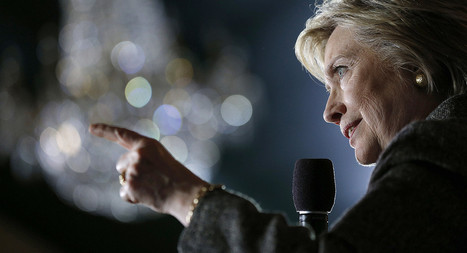
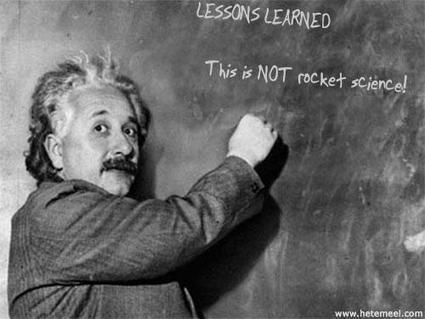
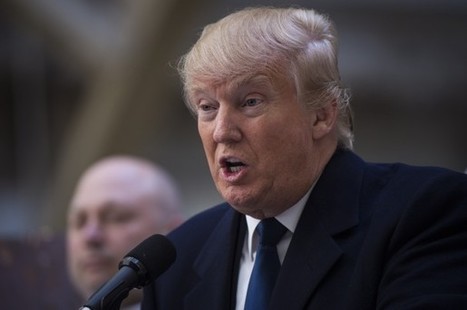
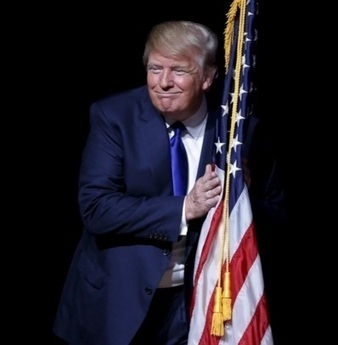

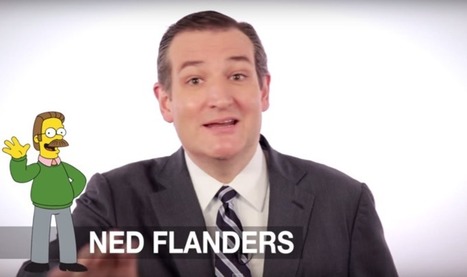
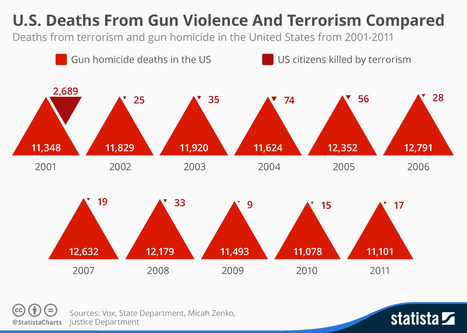
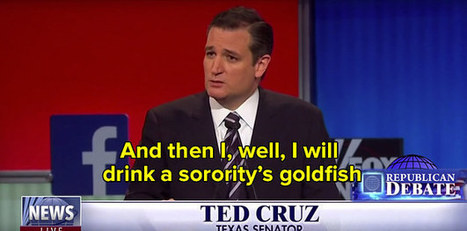



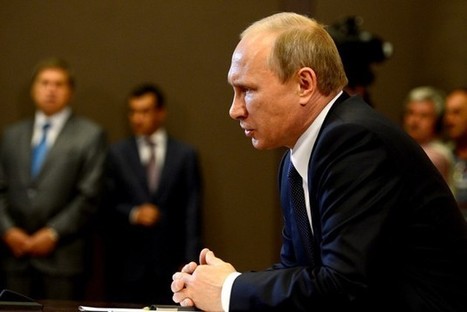
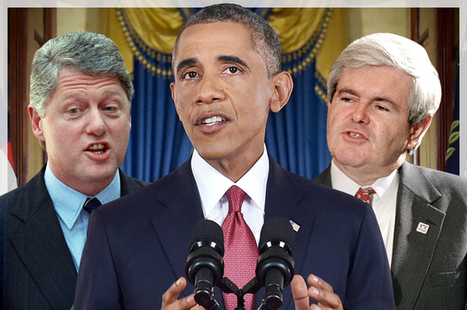

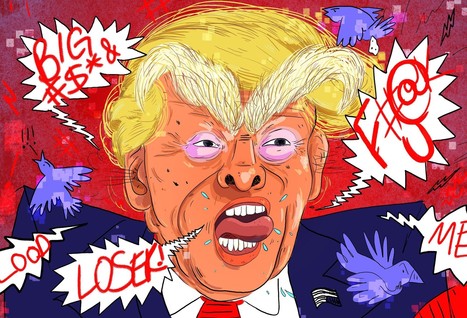


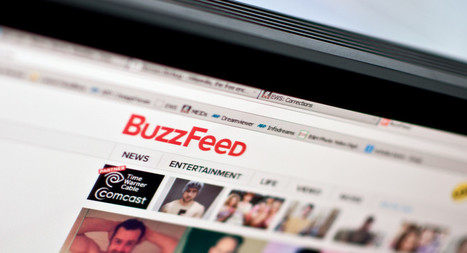
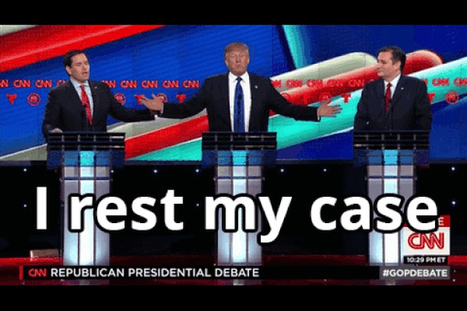





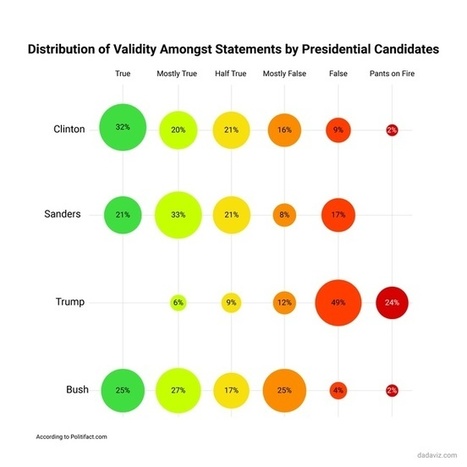











Explaining Donald Trump? What's a poor foreign reporter to do?